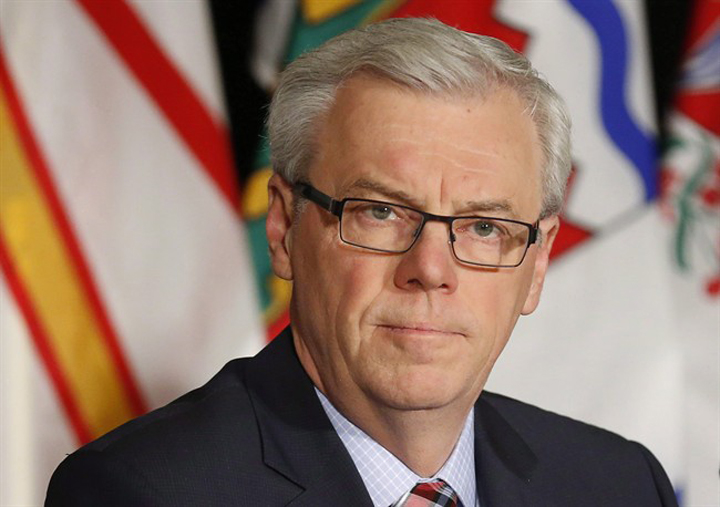WINNIPEG – It may be an understatement to say Manitoba’s NDP government is likely to get trounced in two byelections Tuesday.

Political observers are expecting thorough drubbings in Morris and Arthur-Virden — two constituencies that were already Progressive Conservative strongholds — as voters get their first chance to weigh in on the government’s increase to the provincial sales tax.
“I think the Tories are looking at some positively Putinesque results in these ridings this time around,” said Royce Koop, who teaches political science at the University of Manitoba, referring to Russian President Vladimir Putin.
The NDP “would like not to see their vote fall off a cliff,” added Paul Thomas, a political science professor emeritus at the university.
The byelections are the first since Premier Greg Selinger raised the sales tax to eight per cent from seven last July. The government side-stepped the balanced budget law that requires a referendum on any sales tax increase by retroactively changing the law.
Since then, opinion polls have suggested that the NDP has sunk to its lowest level of support since taking power in 1999 and is running well back of the Tories.
To add to the government’s challenge, the two constituencies have been Tory-blue for decades.
Morris, a sprawling area south of Winnipeg, has gone Conservative since the 1950s and gave the party 74 per cent of the vote in the 2011 general election. Arthur-Virden, in the southwest corner of the province, voted 66 per cent Tory in 2011.
- What is a halal mortgage? How interest-free home financing works in Canada
- Capital gains changes are ‘really fair,’ Freeland says, as doctors cry foul
- Ontario doctors offer solutions to help address shortage of family physicians
- Canada will take bigger economic hit than U.S. if Trump wins election: report
The New Democrats may have a tough time getting 10 per cent of the vote — the amount required to qualify for a partial reimbursement of campaign expenses, Thomas said. The party scored 30 per cent in Arthur-Virden and 19 per cent in Morris in the last election.
“There is a backlash against actions of the government, most notably the (sales tax), and it’s strongest in rural areas.”
The results won’t have any large-scale impact. The NDP has a solid majority with 37 of 57 legislature seats and has two years to go before the next general election.
But the byelection could indicate what voters think of new political leaders. Brian Pallister took over the Tory leadership in 2012 and Thomas said it will be interesting to see if support for the party grows under the new boss.
The Liberals also have a new leader in Rana Bokhari, a lawyer who took over for the outgoing Jon Gerrard last October. The Liberals haven’t had more than two seats in the legislature since the 1990s, and have struggled to attract supporters and money.
Recent polls suggest the Liberals are gaining traction, but whether that translates into votes is another matter, Thomas said.
“A new young leader could be fresh and even charismatic and full of energy and all the rest of it, but when you’re in the wilderness for so long, rebuilding the party, finding the money, finding the talent to run in ridings is such an uphill battle.”
The Liberals finished a distant third in both constituencies in 2011. They garnered six per cent of the vote in Morris and four per cent in Arthur-Virden.



Comments